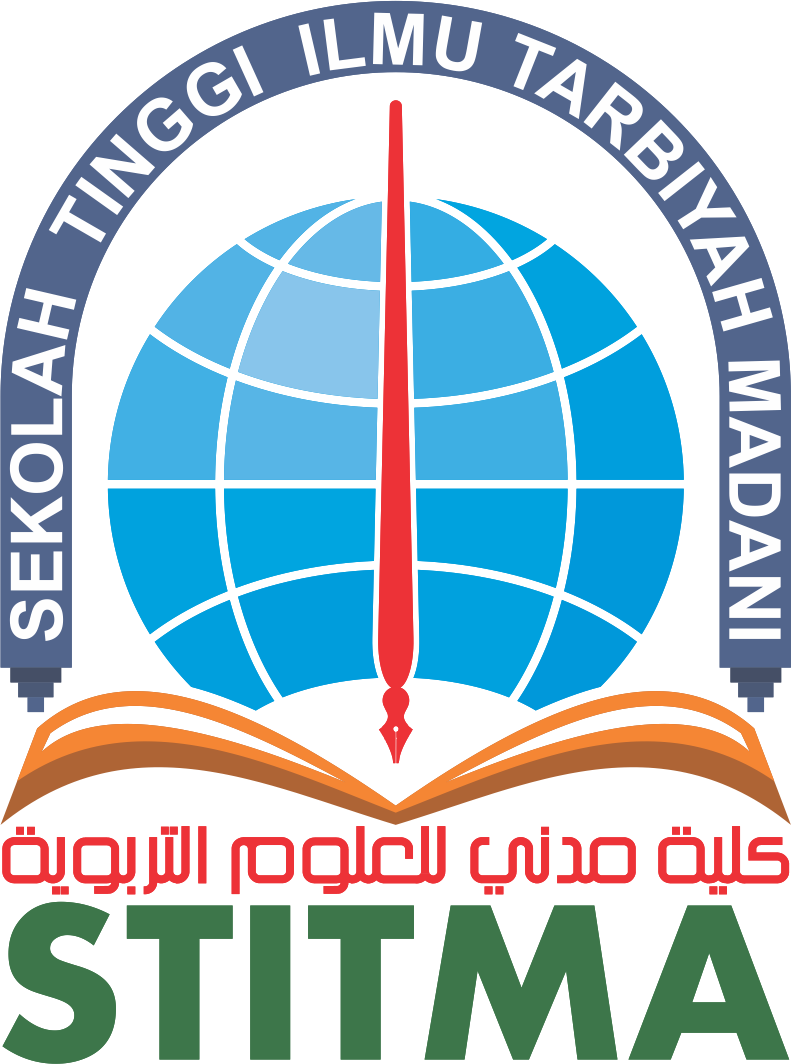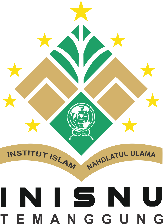Environmental preservation from maqasid shariah and islamic perspective: A literature review
DOI:
https://doi.org/10.59944/amorti.v4i1.404Keywords:
Maqasid Shariah, Environment Preservation, Islamic, EnvironmentAbstract
Environmental preservation has became one of the core topic to be addressed due to today’s global warming and continuous climate shift. In Islam, environmental preservation is firmly part of Islamic priorities where Allah has entrusted human with the earth and its resources. This includes the balance of resources management and distribution, sustainable practices and conservation and preservation. The purpose of this article is to explore environmental ethics and its well-being through the viewpoint of Islamic teachings and principles. This study used narrative literature review to provide a more comprehensive overview of how Islamic teachings and principles has put environment as important as the well-being of mankind. This article shows that Islam views environment as an important element in life sustainability. Quranic verses, hadith and Islamic jurisprudence perceive environmental preservation as not only a matter of individual ethic but also considered it as religious obligation. The five dharuriyyat in Maqasid Shariah also are strongly associated with environmental preservation and plays a big role in achieving its of each maqasid. Thus, it is concluded that environmental preservation is indeed a holistic responsibility to every person on earth where the condition of environment is depending on the human’s action and behavior. If the humans govern the earth with good regulations then the well being of environment is highly guaranteed. Likewise, the corruption and humans’ greed will cause damages to the earth.
References
Abdullah, H. (2024). The Caliph Uthman Bin Affan and The Well. Retrieved from https://awqafsa.org.za/the-caliph-uthman-bin-affan-r-a-and-the-well/. at 27th August 2024.
Ardianta, S. (2022). Strategies for Utilizing Fiction Literature as an Antidote to Radical Islamic Understanding among Students of UIN KHAS Jember. AMORTI: Jurnal Studi Islam Interdisipliner, 1(2), 122–130.
Adenan, F., Fadzil, N, H., Latif, A, A., Hamid, M, H, A., Arif, M, A, A., Rosli, M, S, D. (2023). Dharuriyyat Al-Khams and Its Relation to the Protection of the Environment. Al-Qanatir International Journal of Islamic Studies. Vol 30 (2), 38-47.
Al-Khadimi, N, M. (2001). ‘Ilm Al-Maqasid Al-Syariah. Maktabah Al-’Abiykan.
Al-Qaradhawi, Y. (2001). Ri’ayatu Al-Bi’ah fi As-Syari’ah Al-Islamiyah. Cairo: Dar Al-Syurq.
Al-Sibaghhi, Mustafa. (1972). As-Sirah An-Nabawiyyah Durus wa Ibrah. Dar al-Kutub al-Arabiyyah. Pg 35.
Dayyan. M., & Afroz, R. (2012). Islamic Approach to Environmental Protection. International Conference on Public Policy and Social Science. Pg 673-685.
Handayani, D., Masudin, I., Haris, A., & Restuputri, D. P. (2021). Ensuring the Halal integrity of the food supply chain through halal suppliers: a bibliometric review. Journal of Islamic Marketing. 13(7), 1457-1478. https://doi.org/10.1108/jima-10-2020-0329.
Hadisi, L., Hakim, M. R., Musthan, Z., Nashihin, H., & Kendari, I. (2023). Implementation of Learning Management In Building an Attitude of Religious Tolerance at State High Schools In The Muna District. Edukasi Islami: Jurnal Pendidikan Islam, c, 1879–1892. https://doi.org/10.30868/ei.v12i03.4296
Husna Nashihin, & Yenny Aulia Rachman. (2024). Education strategy of counter-radicalism with aswaja orientation in quranic education centers in indonesia. At Turots: Jurnal Pendidikan Islam, 6(1), 445–450. https://doi.org/10.51468/jpi.v6i1.707
Istiani, M. & Purwanto, R, M. (2019). Fiqh Bi’ah Dalam Perspecktif Al-Quran. Jurnal Mahasiswa FIAI, UII At-Thullab. Vol 1(1), 27-39.
Jatmiko Wibisono, Hafidz, Iffat Abdul Ghalib, H. N. (2023). Konsep Pemikiran Pembaharuan Muhammadiyah Bidang Pendididkan (Studi Pemikiran Muhammad Abduh). Attractive : Innovative Education Journal, 5(2), 514–522.
Kholis, N., & Yunita, V. (2023). Interpretation of Hadith-Sunnah from Schacht ’ s Perspective : Multidisciplinary Study. Amorti : Jurnal Studi Islam Interdisipliner, 2(3), 148–159.
Muchamad Chairudin, H. N. (2023). Nilai-Nilai Pendidikan Akhlak dalam Al-Quran Surat Yusuf Ayat 13-20 Kajian Tafsir Al Misbah Karya M. Quraish Shihab. Attractive : Innovative Education Journal, 5(2), 754–765.
Muthoifin, Erawati, D., Nashihin, H., Mahmudulhassan, Setiawan, B. A., Rofi, S., & Hafidz. (2024). An Interfaith Perspective on Multicultural Education for Sustainable Development Goals (SDGS). Journal of Lifestyle and SDGs Review, 4(3), e01720. https://doi.org/10.47172/2965-730X.SDGsReview.v4.n03.pe01720
Musa, Z. (2010) Fiqh Al-Bi’ah: Prinsip Interaksi Manusia Dengan Persekitaran. Jurnal Syariah. Vol 18 (1), 1-24.
Muchamad Chairudin, H. N. (2023). Nilai-Nilai Pendidikan Akhlak dalam Al-Quran Surat Yusuf Ayat 13-20 Kajian Tafsir Al Misbah Karya M. Quraish Shihab. Attractive : Innovative Education Journal, 5(2), 754–765.
Nurul Umah Fijanati, Hafidz, Sukadi, H. N. (2023). Etika Dakwah Menurut Pandangan Habib Husein Jafar Al Hadar dalam Channel Youtube Jeda Nulis. Attractive : Innovative Education Journal, 4(1), 1–12.
Nashihin, H., Rachman, Y. A., Fitrianto, I., & Suhartono. (2025). Empowering Creativity Of Disabled Students Through Sustainable Agropreneur Education at Ainul Yakin Islamic Boarding School in Yogyakarta to Support the SDGs. Journal of Lifestyle and SDGs Review, 5(2), e02878. https://doi.org/10.47172/2965-730X.SDGsReview.v5.n02.pe02878
Ngabdul Shodikin, E., Sucipto, E., Wasith Achadi, M., Muzaky, F., Wahyu Laras Pertiwi, R., & Tinggi Ilmu Tarbiyah Madani Yogyakarta, S. (2023). Implementation of the Sabaq, Sabqi, Manzil Methods in Improving the Quality of Memorizing Qur’an Learning in Class V Salafiyah Ula Islamic Center Bin Baz Bantul. 1(1), 34–44. https://journal.amorfati.id/index.php/postaxial
Razali, M., Mohd, N, A., Hadigunawan, N., & Saidon, R. (2021) Maqasid Shariah HIFZ MAL in E-Wallet Application. Islamiyyat: International Journal of Islamic Studies, 43(1).
Syaiful Anam, H. N. (2023). Metode Penelitian (Kualitatif, Kuantitatif, Eksperimen, dan R&D). PT GLOBAL EKSEKUTIF TEKNOLOGI. https://books.google.co.id/books?hl=id&lr=&id=w-bFEAAAQBAJ&oi=fnd&pg=PA1&ots=vRP1bKcVRG&sig=dA4E7fb8uf45B7Uv87JkztTGviQ&redir_esc=y#v=onepage&q&f=false
Shuwaytih, F, A, M. (2010). Maqasid Al-Shariah fi Al-Hifz ‘Ala Al-bi’ah. Dar Al-Fikri Al-Jami’iy.
UNICEF. (2017) 17 Million Babies Under The Age of 1 Breathe Toxic Air, Majority Live in South Asia. Retrived from https://www.unicef.org/press-releases/babies-breathe-toxic-air-south-asia at 27th August 2024.
World Health Organization (WHO). “Air Quality, Energy and Health”. Derived from https://www.who.int/teams/environment-climate-change-and-health/air-quality-energy-and-health/health-impacts at (August, 2024)
Zawawi, N, H. (1999) Konsep Islam Terhadap Pemuliharaan Alam Sekitar. Jabatan Kemajuan Islam Malaysia.





























